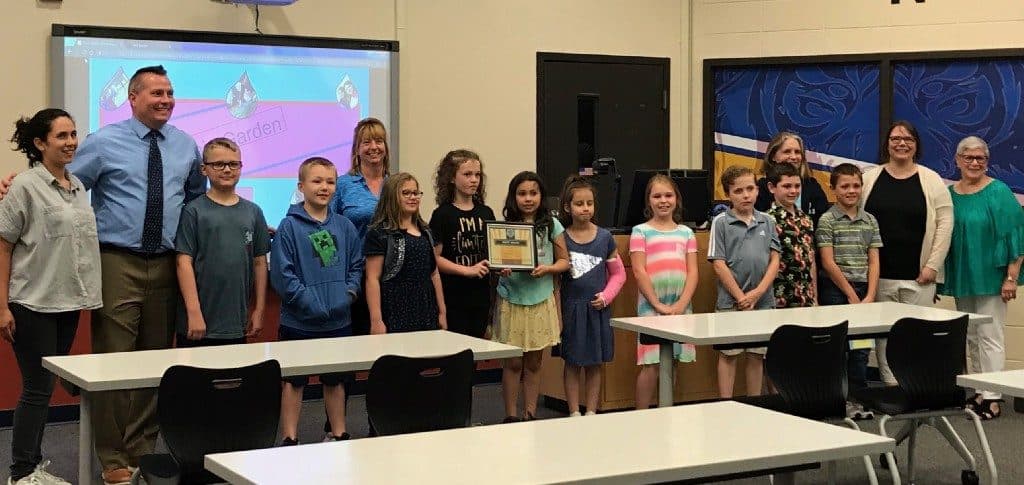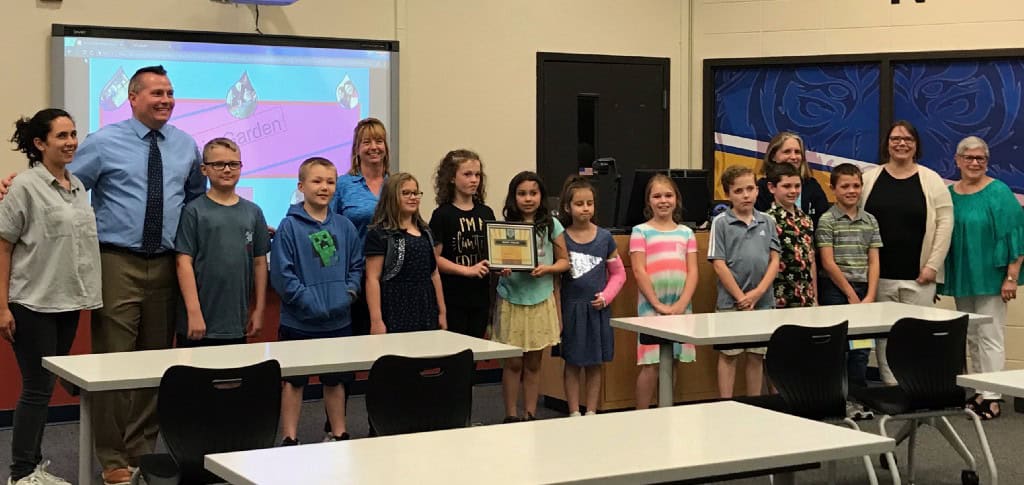
Curriculum improvements may be made through learning opportunities for teachers.

Officials wrapped up the school year at last week’s board of education meeting, starting with a presentation from Donna Layne’s third-grade class on its involvement in creating a 700-square-foot rain garden in the Tabernacle Elementary School courtyard.
According to the presentation, the students created the rain garden by digging 21 inches deep into the courtyard, where they then built swales to channel runoff from higher ground. Plants were placed into the rain garden where they are able to absorb runoff water.
When selecting plants, they had to figure out which plants can successfully grow even when their roots are constantly wet. In addition, the plants had to be perennials, which means they come back every year.
The chosen plants are swamp milkweed, virginia sweetspire, orange coneflower, red twig dogwood, soft rush, spotted beebalm and indian grass.
The presentation was followed by a curriculum update presented by Barry Saide, supervisor of curriculum and instruction. Saide stated teachers should not be “teaching in the dark” and therefore can seek further education in their field through the proposed curriculum update.
This proposal introduced the need for curriculum revisions to meet the new Quality Single Accountability Continuum expectations, including curriculum mapping, accurate and suggested timelines for lessons and differentiating curriculums to fit the learning needs of all students.
To make curriculum improvements, a “curriculum cohort” of a maximum of 15 staff members can partake in a year-long focus in math, English language arts or subject/content specific.
Those interested will go through an open application process with two requirements. Staff members must be performing at an effective rate and be employed at the school for more than four years.
Selected staff members will attend a three-day summer learning institute, where they will work with a professional development provider in their area of focus.
They will be required to attend five meetings during the school year, outside of school hours, with a subject specific sub-cohort group, to dive deeper into what they’ve learned over the summer and to build off of others’ contributions.
Two additional hours per month will be used to revise their current curriculum and to make improvements based on what they’ve learned through the institute, and there will also be an observation model via four videos to meet the reflective practice protocol.
This could lead to there being up to 15 instructional coaches/content specialists each year, where they can then spread their knowledge to other teachers and over the years will lead to all teachers being instructional coaches/content specialists.
When asked how staff members responded to this idea, Saide responded, “Wholeheartedly, all I heard was ‘that’s awesome, let me know.’ We’re all on board, and that’s the most powerful thing.”
The costs are already incorporated into the budget, so it will be of no extra cost to the district.
The board of education members all agreed this would be the best plan of action for the 2018–2019 school year.
The next board of education meeting will be held on July 16 at 7 p.m. at Kenneth R. Olson Middle School.


